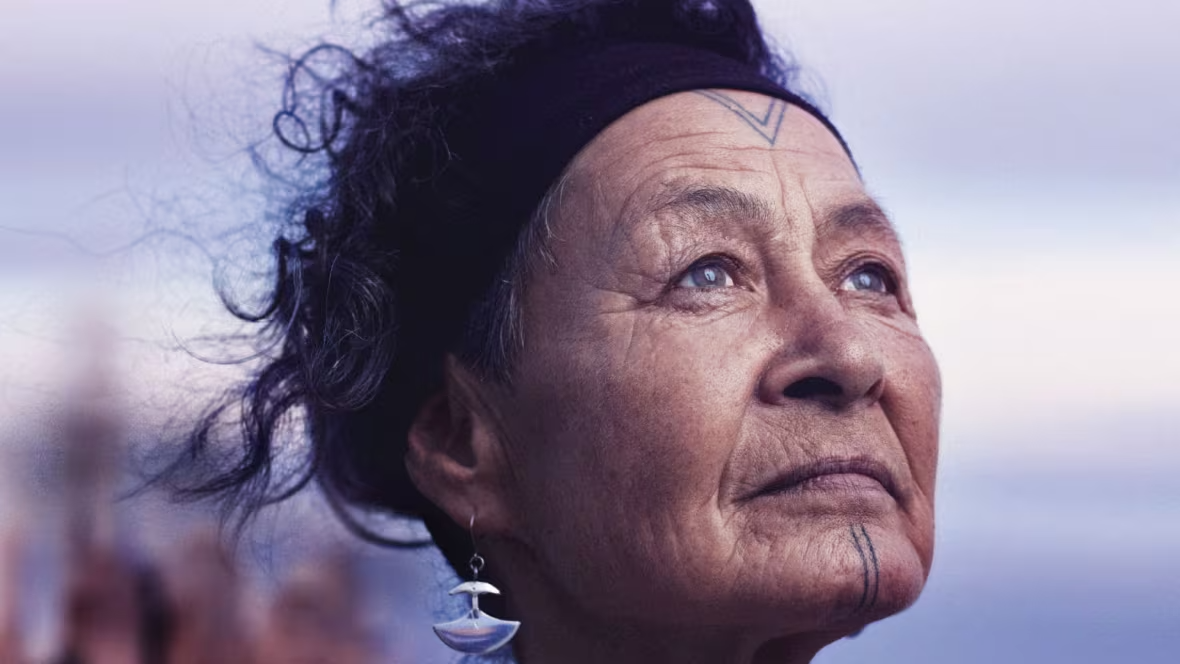Canada News
Twice Colonized wins documentary prize at Canadian Screen Awards

Aaju Peter’s film, Twice Colonized, is an in-depth, intimate look at her strength, determination and dedication. (Donald Michael Chambers via RCI)
· CBC News
Documentary follows Aaju Peter’s journey through the trauma of colonization and loss of her son
WARNING: This story contains discussion of suicide.
Activist Aaju Peter first set out to create the documentary Twice Colonized to share the trauma of forced assimilation as an Inuk, both in Greenland and in Canada.
What she didn’t expect to also be discussing was the trauma of losing her son to suicide in 2018, partway through filming. Though that’s a tragedy she said many Inuit have reckoned with.
“Especially when you live in a small community, everybody knows of people who have lost somebody in their family,” said Peter, who is both the subject and co-writer of the documentary.
But she found the strength to open up about the loss, which rocked her family, because it was part of the healing process.
“I think that trauma has happened to almost everybody, and it’s something that we need to try to recognize and try to move on from,” Peter said.
That story, directed by Lin Alluna, has won the best feature length documentary prize at the Canadian Screen Awards.
It’s an accolade Nunavut filmmaker Alethea Arnaquq-Baril, who co-produced the documentary, celebrated in Iqaluit.
“That was an intense production but we’re very proud of it. And it’s very nice seeing Aaju getting flowers,” Arnaquq-Baril said.
Tackling trauma by learning what trauma means
To begin dealing with the trauma of losing her culture, language and later her son, Peter said it was important for her to understand what the word actually means.
“We don’t even have the terminology for trauma [in Inuktitut]. What is trauma?”
Greenland, where Peter was born, was integrated into the Danish kingdom in 1953 after centuries of Scandinavian colonization.
She still recalls being sent to school in Denmark, with no contact with any other Greenlanders.
“When I went back to Greenland when I was 18, I was totally shocked that I couldn’t speak my own language. I didn’t fit into the system that I had been born into.”
Then she moved to Iqaluit, Nunavut, a territory colonized by the Europeans, hence the name Twice Colonized.
Though the film explores the scars of colonization on Inuit, Peter said viewers around the world have told her how the film has resonated with them.
“There are people, not only Inuit or Indigenous people, but many people from other countries, who see so much of their own pain of loss of language and culture in the documentary,” she said.
Other Inuit recognized by the Canadian Screen Awards included Alexis Vincent-Wolfe, who was nominated for best performance in a supporting role in the film Slash/Back, an Inuit science fiction film set in Pangnirtung.
If you or someone you know is struggling, here’s where to get help:
- In the Northwest Territories, reach the NWT Help Line 24/7 at 1-800-661-0844.
- In Nunavut, reach the Kamatsiaqtut Help Line 24/7 at 1-800-265-3333 or 867-979-3333.
- In Yukon, call the Reach Out Support Line between 10 a.m. and 2 a.m. seven days a week at 1-844-533-3030.
- Talk Suicide Canada: 1-833-456-4566 (phone) | 45645 (text between 4 p.m. and midnight ET).
Hope For Wellness Helpline: 1-855-242-3310 (phone, available in Inuktitut, Cree and Ojibway upon request).





















